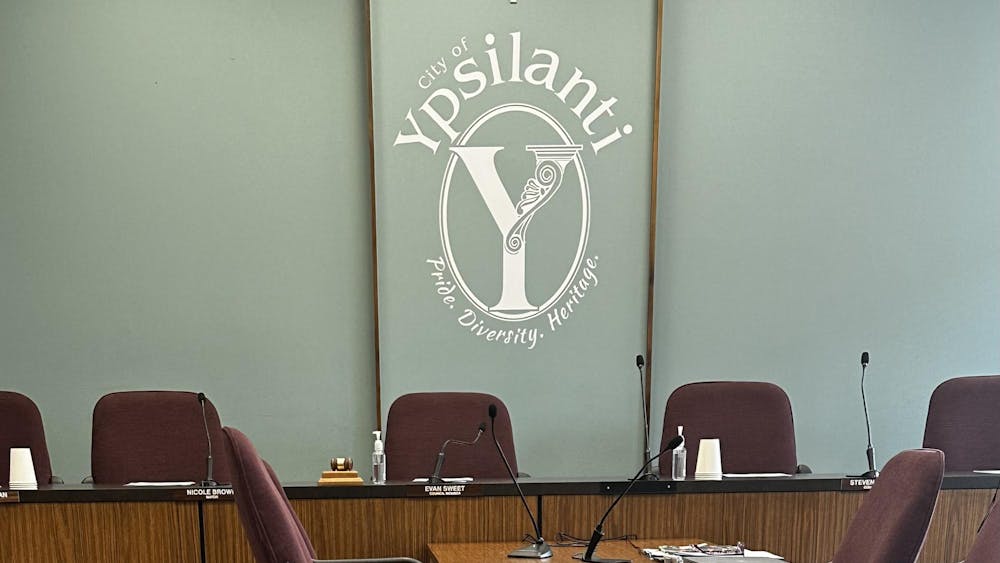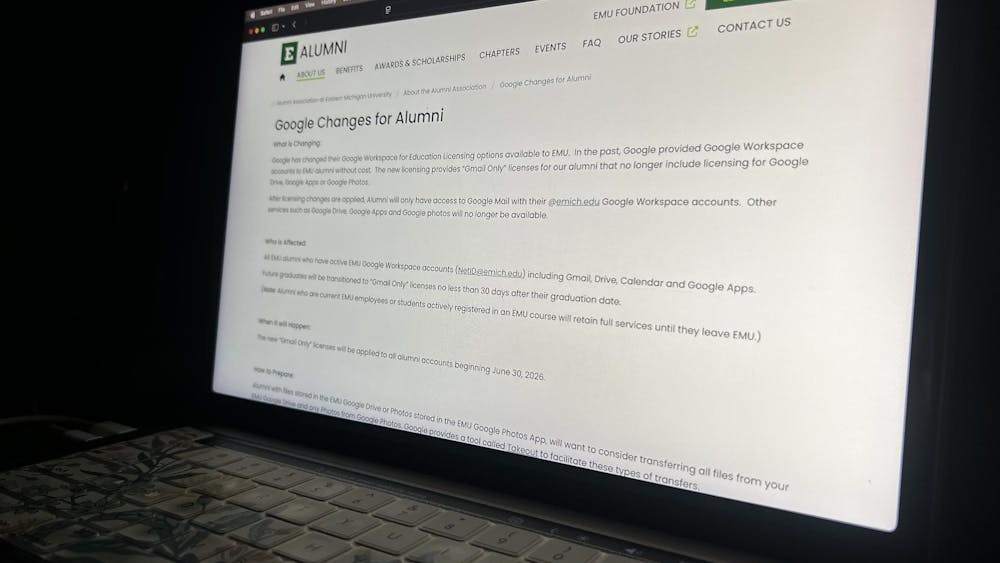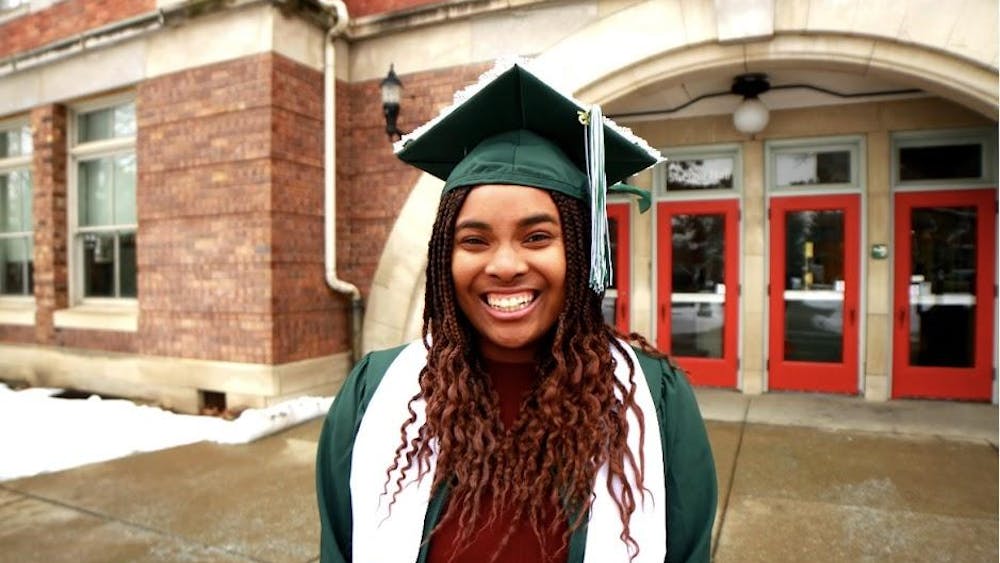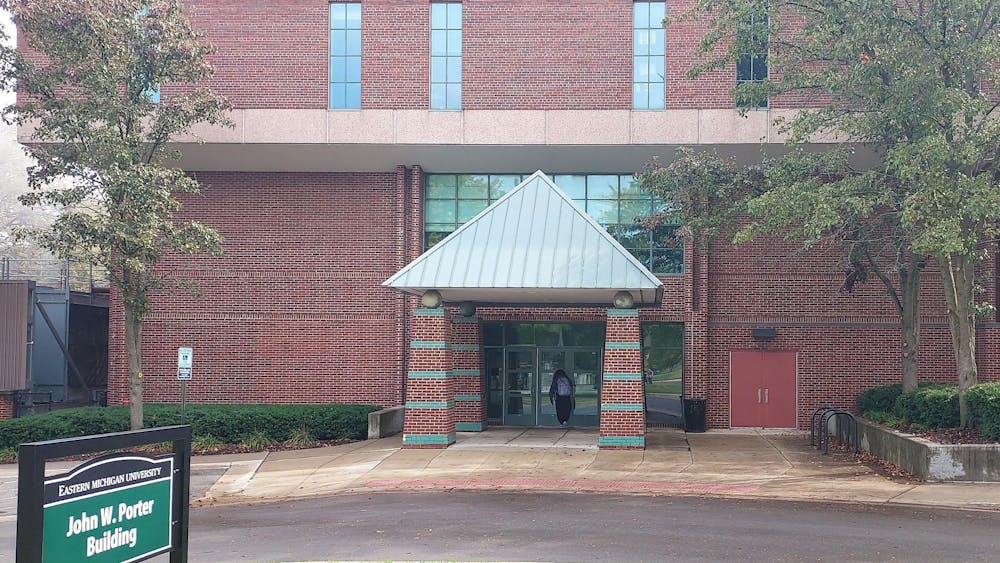From June 23-27, 2025, the fifth floor of Pray-Harrold was filled with chatter and the sound of clicking computer mice. Robots raced, and drones flew – all coded by a group of about 30 middle school girls.
For the ninth year, the Bits and Bytes Summer Camp ran for one week from 9 a.m. to 4 p.m. The camp is hosted by the Eastern Michigan University Department of Computer Science and led by the department head, Krish Narayanan, as well as four peer mentors from the Women in Computer Science Club.
Narayanan said that she handpicks these mentors, usually students she has met in classes or in the club. She said the most basic requirement is at least one to two semesters of coding classes.
Additionally, she looks for students who are open-minded and willing to help. She said she recognizes the stereotype of introverted computer science students and wants to show a different side.
Sponsored by NASA’s Michigan Space Grant Consortium, Bits and Bytes is completely free aside from a $50 registration fee. Scholarships are also available to help cover that fee.
NASA's sponsorship pays for the technology, free merchandise, a variety of snacks, peer mentorship positions, and more. It also allows the attendees to take certain things home; for example, some take home a mini computer, while others take the mini Ozobot robots.
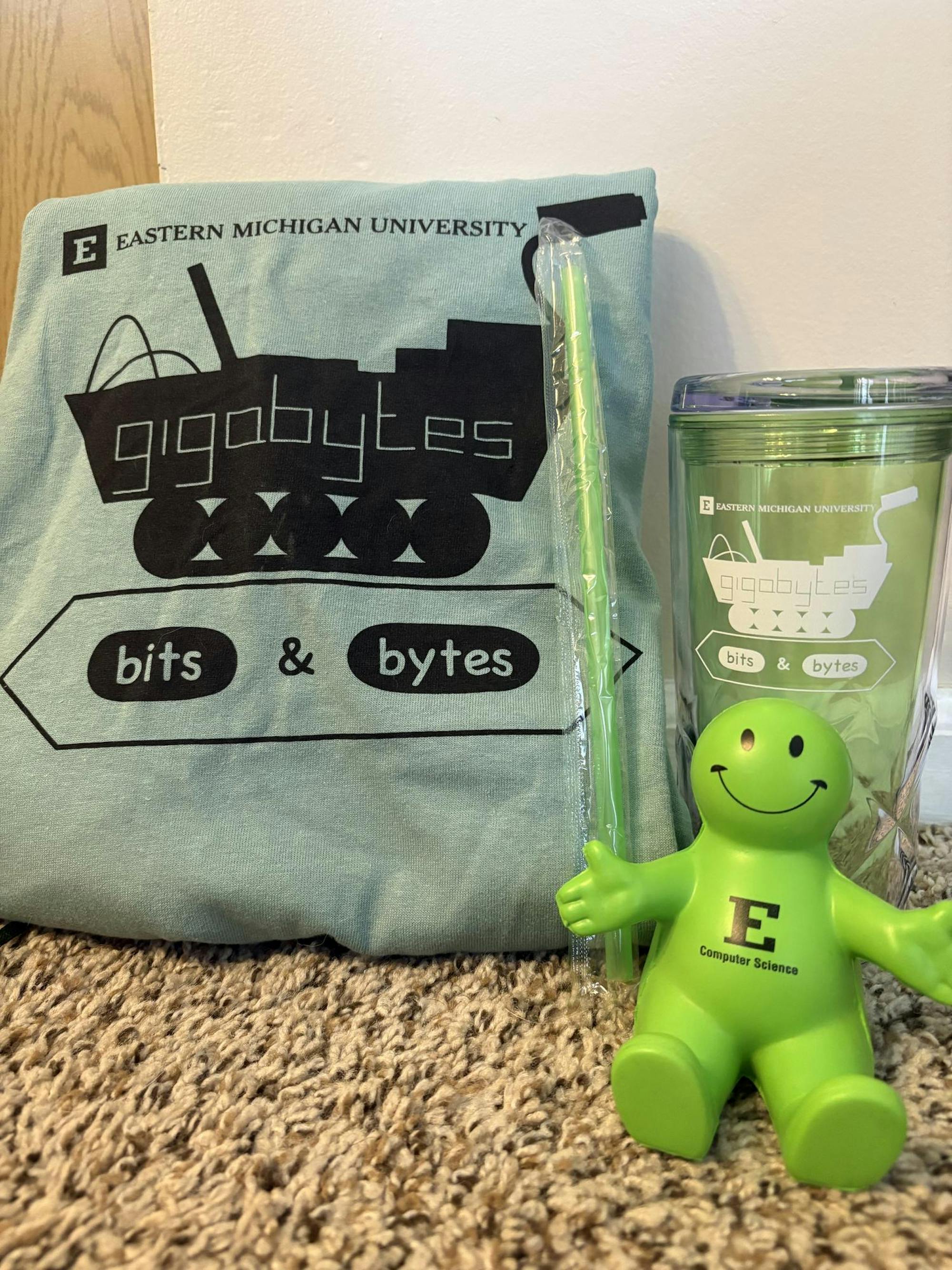
The swag for the 2025 Bits and Bytes camp features a free shirt, free water bottle with a straw, and a free squishy phone holder.
Narayanan said the goal of having the camp be almost entirely free is to attract local girls and make computer science accessible to more people.
The overall goal of the club, Narayanan said, is to get middle school girls into the camp and provide them with different opportunities to learn and explore coding.
To keep coding accessible and the attendees interested, the camp uses block-based coding as opposed to Java or Python typed code.
Block-based coding takes blocks of pre-typed commands and allows users to drag and drop them, connecting them to make the program do what they want.
They use this style of coding as the foundation for everything done in the camp, from playing soccer with mini robots to programming a mini computer.
During the camp, the girls fly drones, code a mini computer, tour campus, and participate in a mock hackathon. They also learn to code Ozobots, send them through a maze, have them play soccer, and send them on a pretend space mission.
The Ozobots, drones and mazes have been around since the beginning of the camp. However, the mini computers, called Micro:Bit, are new this year.
With the block-based coding method, users can program the computers to do a variety of things, from counting steps to spelling words.
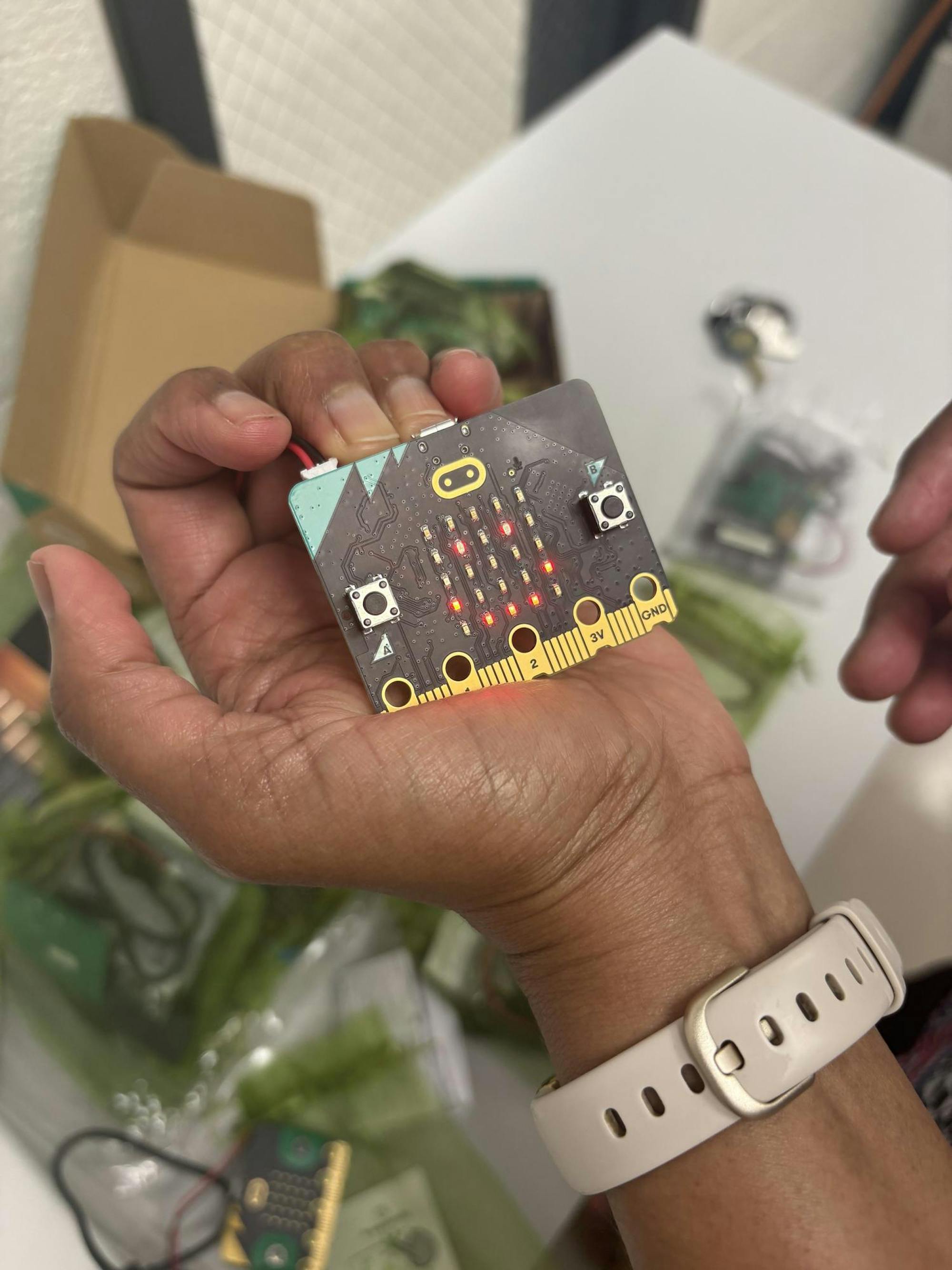
The 2025 camp features new mini computers called Micro:bits that can be programmed to do a variety of tasks such as count steps or spell words on their LED light display.
At the end of each day, attendees' parents are invited to see a demonstration of what was done that day.
On the last day of camp, parents are also invited for the closing ceremony. In the afternoon, there is a guest speaker, student panel, and award ceremony for the mock hackathon winners.
The mock hackathon takes place the morning of the last day and requires attendees to apply the skills they have learned throughout the camp to create a prototype designed to teach elementary students something valuable, such as how to add numbers or how the heart functions.
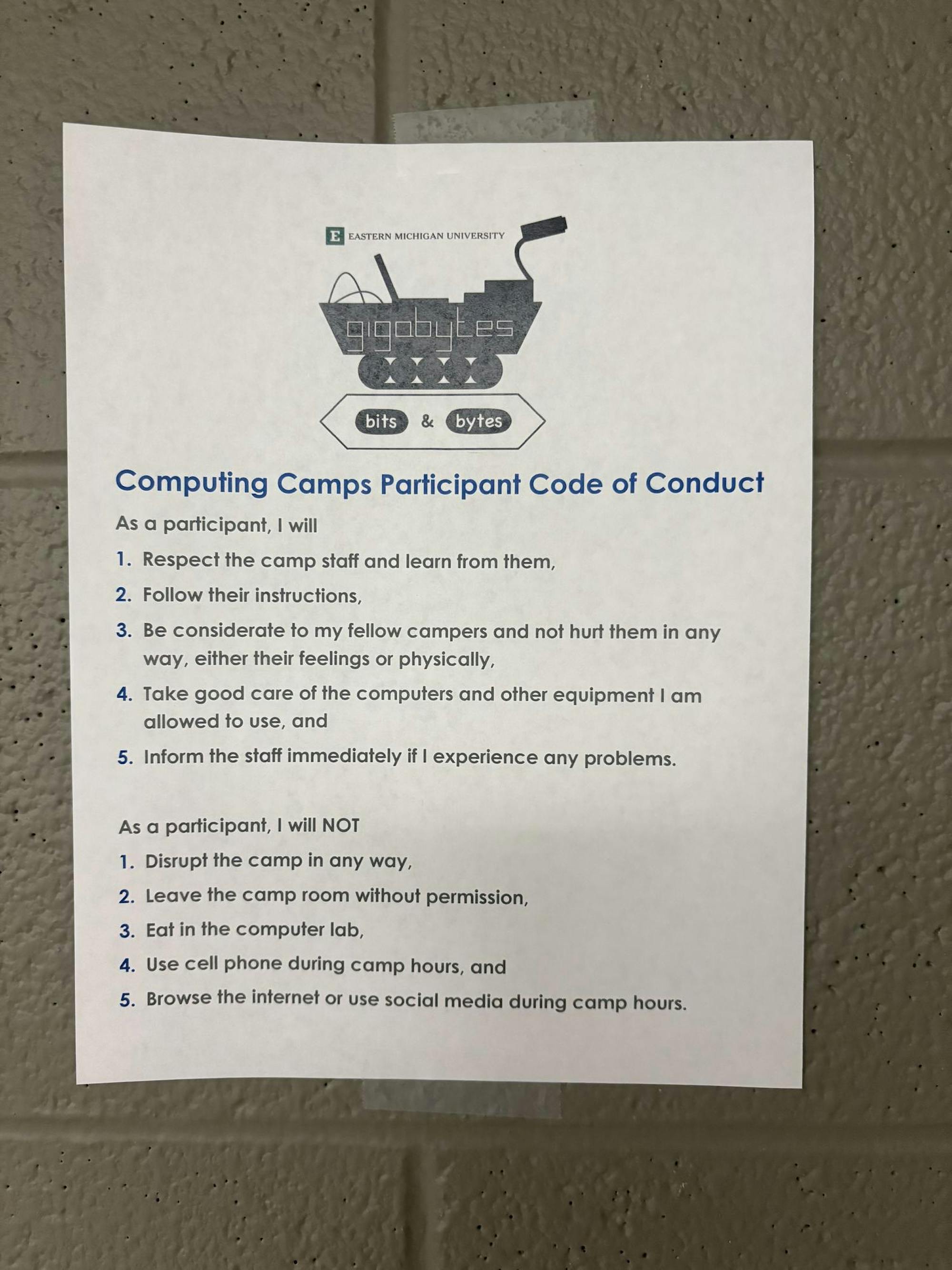
The Bits and Bytes camp is open to anyone, no experience necessary, but it has it's rules and code of conduct.
According to Narayanan, the camp has become so popular that some girls will come multiple years in a row.
This also led her to create the GigaBytes Summer Camp, a similar camp for high school girls.
The GigaBytes camp teaches more complex coding; for example, participants learn to program drones to fly through hoops and buildings and program their own mini robots.
2025 will be the third year for the GigaBytes camp, and it will take place July 21-25. Those interested in attending can sign via the registration form on the EMU Department of Computer Science website.
Since the camp has become so popular and the materials can now be taken home, the Bits and Bytes camp has compiled all the coding technology used into their own free website. Then, their attendees can practice more at home, even after the camp has concluded.
The website is also accessible to those who have not attended camp but are interested in learning to code.
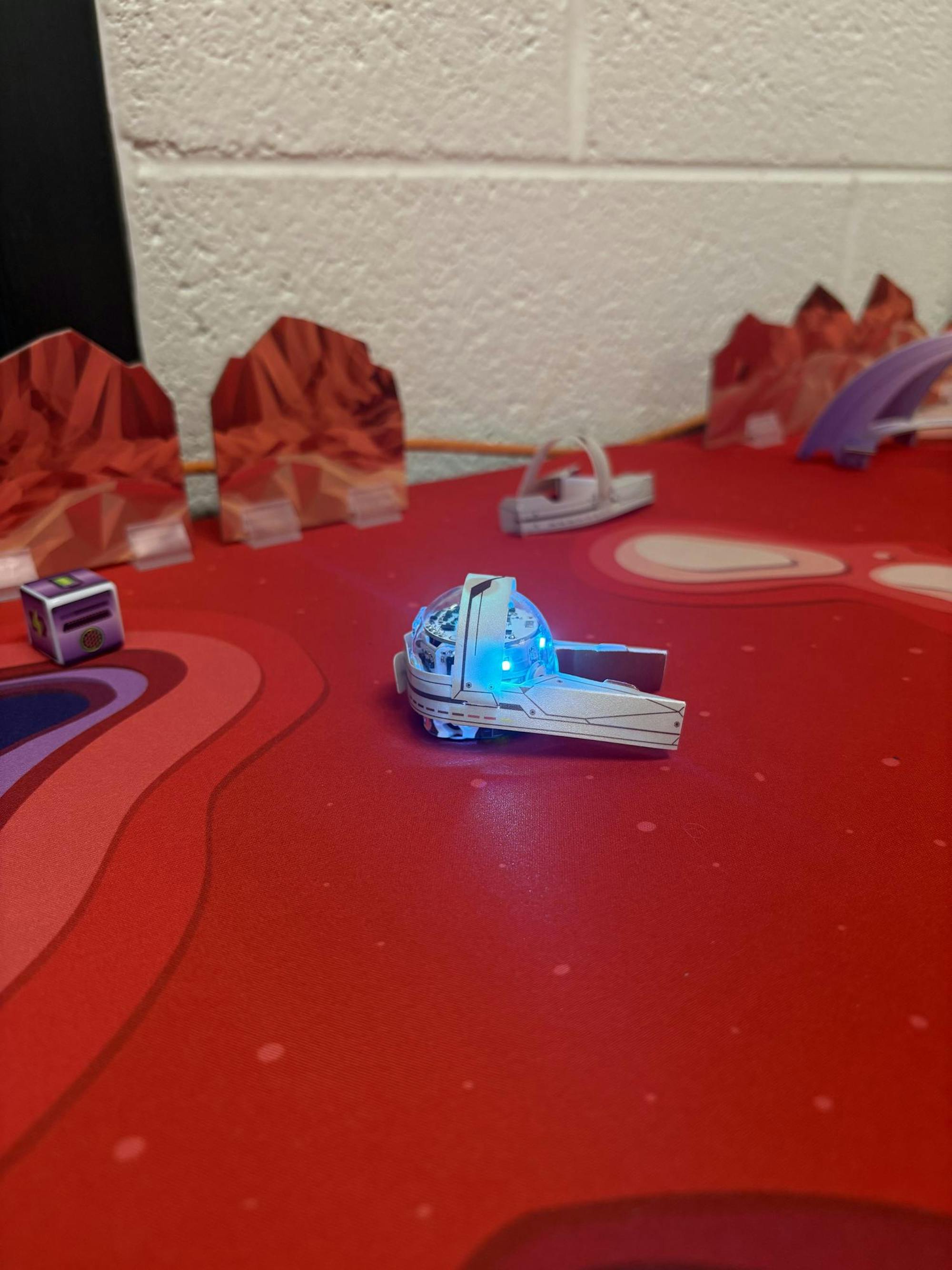
The Ozobots can be dressed up and carry things around. This Ozobot is carrying a paper cutout to gather and push elements of the Mars mat.
Narayanan said it has been extremely rewarding to see how her camp has influenced and inspired the students. She knows of at least three Bits and Bytes attendees who are now studying computer science at EMU.
Narayanan got the idea to start a coding camp when her daughter was in middle school, four years before it came to EMU. She noticed how her daughter’s peers started to lose interest in math and science. So, she took action and taught her daughter and a few of her friends coding in her basement.
This inspired her daughter to help find funding to bring the camp to EMU and create a full summer experience out of it.
This funding has also allowed the camp to bring in a middle school teacher this year. The teacher will be able to take some of the materials back to their school and create their own computer science club.
Bits and Bytes has found great success at EMU. It even continued online during COVID, and now it is expanding to create a second camp.
Annabelle P., a current camp member, said, “I was worried about making friends, but everyone here is so nice, and I’m having so much fun.”
Check out a full gallery of the camp on our website here!




